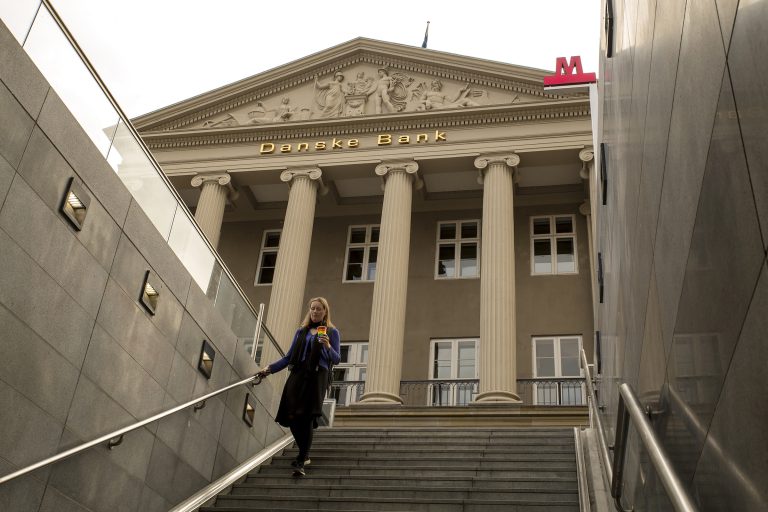Danish banks are handing out blankets to chilly staff members after the government imposed regulations limiting the temperature in commercial buildings to 19 C (66.2 F).
Peter Froulund, a spokesperson for Denmark’s sixth-largest bank, Arbejdernes Landsbank, was paraphrased by Bloomberg in a Sept. 22 article as stating that “blankets have been provided to the 1,800 employees in case they should freeze.”
Meanwhile, Neel Rosenberg, a spokesperson for Spar Nord Bank, the country’s fifth largest institution, was paraphrased as likewise stating the firm was “making a stash of blankets, jackets and shirts it already has in its branches and offices available to its 1,600 employees.”
MORE ON THE WORLD’S LOOMING COLLAPSE
- Russia Burning Off Massive Amounts of Natural Gas Believed to Originally Be Destined for Germany
- Traders are Profiting $133 Million Per Shipment to Send US Natural Gas to Europe
- Army Tells Soldiers to Use Food Stamps as Inflation Derails Middle Class
Rosenberg was directly quoted as clarifying that the bank was simply repurposing corporate swag for the purpose, “These are items we normally hand out to clients, but our employees can now use them if they want.”
In a separate Sept. 8 article, Bloomberg reported that Dan Jorgensen, Denmark’s Climate Minister, had announced that alongside the cap on public sector building heat, government buildings would no longer turn on exterior lighting.
Success
You are now signed up for our newsletter
Success
Check your email to complete sign up
The previous temperature of office buildings was on average 22 to 23 C (71.6 to 73.4 F), the article added.
The situation results from the European Union’s energy crisis, which itself results from the region shooting itself in the foot with heavy sanctions against the Russian Federation over the war in Ukraine, which ultimately led to Russia severing natural gas deliveries.
In neighboring Sweden, UBS Group AG took comparatively more tepid measures, reducing the average office temperature by only 1 C, Bloomberg added in a tertiary Sept. 8 article.
Additionally, UBS stated additional measures deployed would be to encourage staff to turn off computer monitors and to turn off office lighting after 6:00 p.m.
Notably, both JP Morgan and UBS told the outlet that in the event of rolling blackouts, their banks had backup diesel generators ready and waiting.
The relative hysteria came the same day that EU President Ursula von der Leyen invoked the ghost of Coronavirus Disease 2019 (COVID-19)’s Chinese Communist Party-emulating lockdowns and measures when she told the press on the topic of the continent’s energy crisis, “What we have to do is ‘flatten the curve’ and avoid the peak demands.”
Crashing global economies and a brewing energy crisis may be the next vanguard used to install homegrown global versions of the CCP’s notorious social credit system.
A spokesperson for Switzerland’s Department of Finance, for example, was quoted as posturing that their administration was considering initiating a regimen of daily fines starting at 30 francs ($31~) and scaling to 3,000 francs ($3,050~) in combination with a maximum prison sentence of three years for individuals who heat their homes above 19C, Daily Mail reported on Sept. 7.
The pickle that Europe has placed itself in amid its arguably shortsighted efforts to crush Vladimir Putin and Russia has resulted in an inauspicious throwback to simpler times.
A Sept. 20 report by Business Insider South Africa stated, “With winter approaching…countries in Europe are facing a stark reality of rationing, thievery and a reliance on wood.”
The article cited sources quoted by the Washington Post as stating that “firewood is the new gold.”
In June, Poland told its citizens that they could go to the forest to gather fallen branches in order to heat their homes in the coming winter, so long as they informed the government in advance, and paid a fee.
In Germany, a different kind of problem manifested after the push to ration natural gas by way of parabolic price increases simply led to the population rushing to buy inefficient electric space heaters.
Such appliances, which usually involve either heating ceramics and pushing warm air with a fan or heating oil and relying on ambient radiance are often rated at 1,500 watts of consumption or more and are only useful for regulating the temperature of a small room.
German media outlets had reported earlier in September that more than 600,000 such units had been sold already, an increase of more than 35 percent year over year.
In response, Peter Lautz, Director of a major German electricity retailer, warned in comments to German media that the consequences to the power grid will be significant.
“If everyone switched on a fan heater at home, it would mean that we would have to almost double the existing network structure on every street,” he stated.

















